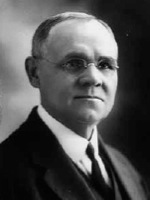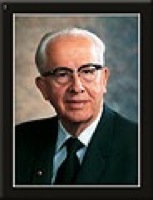So, the 4th Commandment, the Sabbath day. This is perhaps my biggest pet-peeve about the Christian world. Everyone who claims to be a Christian should follow and obey the Ten Commandments. Jesus said, “Think not that I am come to destroy the law, or the prophets: I am not come to destroy, but to fulfil. For verily I say unto you, Till heaven and earth pass, one jot or one tittle shall in no wise pass from the law, till all be fulfilled. Whosoever therefore shall break one of these least commandments, and shall teach men so, he shall be called the least in the kingdom of heaven” (see Matthew 5:17-19). The “law” and the “prophets” that he refers to are the laws from the Old Testament, including the Ten Commandments. True he came to fulfil the law, to bring us to a higher level of living and being, but these basic Ten Commandments must still be followed. They are stepping stones, so that once we have mastered them, we can move on to mastering others.
Yet, most of the Christian world does not follow this 4th Commandment. Maybe I am harsh, but society used to be a measure of mainstream Christianity, and, well, society definitely does not follow this Commandment, nor any of them, really. I wonder if the teachers and preachers in other denominations, other than the LDS, teach the commandment to keep the Sabbath day holy. If they do, the people aren’t obedient.
There is so much to discover and learn about this commandment, that it’s a bit overwhelming. It’s so clear and plain in the scriptures, I’m confused how so many people can’t/won’t/don’t follow it. It is basic; don’t work on the Sabbath. In fact, don’t even make others work. If you have animals that work for you, don’t let them work either! Pretty simple.
Then there’s the issue of which day is the Sabbath. If the week has always been Sunday through Saturday, then at the time the Ten Commandments were given, the Sabbath would fall on Saturday. Saturday would be the seventh day, the day God rested after creating the heavens, the earth and all living things. It’s interesting, and important to note, that God says he rested from his labors. He proclaims the work good, even very good, but he doesn’t say it’s done. The creator is Jesus Christ, and his work is not done with the Creation. The last words of Jesus, as he was on the Cross and completing his earthly life and therefore the closing stages of the Atonement, where “My God, my God, why hast thou forsaken me?” (Matt 27:46; Mark 15:34), then “Father, into thy hands I commend my spirit” (Luke 23:46), and finally, “It is finished” (John 19:30). That was when Jesus could say that he “finish[ed God’s] work” (John 4:34). With the Resurrection happening on the Sunday, the Sabbath was moved by the Christian believers to Sunday in honor and remembrance of the Atonement and Resurrection. Sunday is now the Sabbath, and should be a day of rest, a day of no worldly work, and a day to remember and honor and worship our Savior Jesus Christ.
Then there is the matter of what, specifically, one should and should not do on the Sabbath. Many a list can be made, but basically, we are to do that which worships and serves God. This, again, is a commandment for us to be able to focus on God.
So what problems can be solved when this commandment is followed? Well, I think our society here in America is suffering much from the lack of following this commandment. When the Sabbath has proper place in our lives, we will find that we are more focused on God and others rather than ourselves. What do most people do instead of worship and serve on the Sabbath? They work or do recreational activities. They work to get gain, improve their financial standing, they work to get money, money to buy things. It is something focused on self, the root cause is pride. Or they do recreational things, again the root of it is pride, being selfish. If businesses kept their doors closed on the sabbath, and if people worshiped God and served others on that day, then the businesses would do better (there are many a story of this), and people would be focused on others, people would be more happy, the family would begin to be more central in people’s lives again. The sabbath is about putting priorities in place, putting God’s ways above our own.


